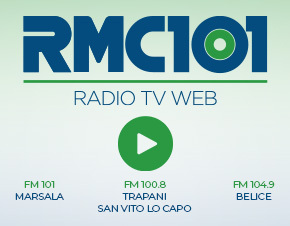Sicilian extra virgin olive oil is gaining increasing success in international markets, to the extent that many call it the "green gold" of Sicily: last May, the oil from the renowned Sicilian company Barbera was awarded as the best in the world at the Sofy Award contest. According to the Oli d'Italia Guide by Gambero Rosso, Sicily ranks in 2023, after Tuscany and Apulia, as the region with the most awarded oils in Italy. Reading the newspapers, it seems that Sicilian oil is experiencing the beginning of a golden age.
However, if one tries to take a closer look at the local olive oil sector, the situation doesn't seem so rosy.
Despite Sicily being the third region in Italy for extra virgin olive oil production, this product suffers primarily from being considered the "little brother" of wine. The olive oil sector in our region is traditionally linked to the wine sector, and the same dynamics are often - erroneously - applied, partly because many wineries in the region add olive oil to their product offerings more for commercial convenience than for the valorization of the product. Yet, wine and oil are different products in many respects: type of cultivation, sales methods, and occasions for consumption. Continuing to consider one as the sidekick of the other risks never separating oil from wine, preventing it from building its own well-defined identity, linked to the valorization of the territory and native cultivars.
We had to wait until 2011 for there to be a regional authority dedicated to the protection and promotion of this product: the IRVO, the Regional Institute for Wine and Oil. Moreover, the decision to include oil among the competencies of an institute that has dealt with wine since 1950 is not a coincidence, but rather seems to be a product of this widespread culture that views extra virgin olive oil as "a wine that hasn't made it yet."
This original sin explains many of the anomalies in the sector.
For example, while schools, universities, associations, and festivals dedicated to wine have gradually emerged, promoting the spread of a certain wine culture in the territory, in the case of olive growing - the second most important crop for our region - things are slow. If today, a young person from Trapani intends to invest in the production and marketing of quality extra virgin olive oil, they face an uphill battle.
In Sicily, courses for olive oil tasters, i.e., those authorized to issue a certificate of physiological suitability for tasting, are scarce. Unlike the case of wine, where training schools like ONAV or AIS have branches and sections in practically every Sicilian province, those dedicated to extra virgin olive oil do not have the same widespread presence. The main associations for extra virgin olive oil in Italy are located in Tuscany, Apulia, Liguria, and Lazio, and it is in those regions or in the more cosmopolitan Milan where frequent training courses are held.
Fortunately, with a combination of online courses and occasional tasting courses held between Palermo and Catania, obtaining the qualification is not impossible, but it's not enough. If one decides to continue on the path of education, the journey is long, and if you reside in the province of Trapani, even more complicated. In fact, once you have obtained the physiological suitability, anyone who wants to become a professional taster is obliged to participate in at least 20 tasting sessions with committees, the so-called "panels." The problem is that there are no professional panels in the entire province of Trapani, and in all of Sicily, there are only four: one in Palermo, two in Catania, and one in Ragusa. A merciless number when considering that in Apulia, there are 11, and in Tuscany, there are 19 (Mipaaf 2023).
The absence of tasting panels is not only a problem for those who want to embark on a professional path but for all the olive-growing companies operating in the territory, as it is a sign that there is a lack of a consolidated network of professionals supporting a quality offer. This lack consequently affects the ability to certify our oils as IGP or DOP. Just think that only 19% of extra virgin oils with quality certification come from Sicily, while 30% are of Tuscan origin, despite our region producing twice the quantity of oil (ISMEA, 2023). This is why the IRVO, in 2022, for the first time in 20 years, organized a course for panel leaders, with the aim of strengthening the presence of oil professionals in the regional territory.
Furthermore, the shortage in Trapani - a region dedicated to olive growing - of significant events such as fairs, tasting days, or events dedicated to the enhancement of this product, favors the maintenance of a poor olive culture of quality in our territory. Experiences like those of the "Frantoi Aperti" in Umbria, a regional initiative that attracts tourism dedicated to quality oil, should help us understand what direction to take.
Finally, as ISMEA highlights in its report on the state of this sector, Italy lacks an entrepreneurial olive-growing sector, and olive groves are often managed unprofessionally: there is a lack of investments in irrigation systems and appropriate pruning knowledge, which would help improve the quality of the product, starting from the field.
All this is not just a cultural dimension, but less training and lower quality actually result in lower earnings. A territory that cannot enhance its own product ends up handing it over to others who, by bottling and investing in the brand, will sell it in other markets at higher prices. Tuscany, despite producing 5% of national oil, bottles 36% of it, and even Lombardy, which is not among the producing regions, bottles 10%.
The feeling is that, with some exceptions, our territory is not maximizing the potential that a product like oil could represent, in terms of economic and cultural wealth.
It would be enough to start considering oil as a product with its own well-defined identity and ensure it can express its full potential, thus ceasing to live in the shadow of wine. Agricultural olive companies need to rely on professional figures capable of guiding them in a path towards quality research and networking, investing in training, olive tourism, and creating a territorial culture of extra virgin olive oil that also involves the local restaurant world. All this to truly transform oil into gold, not just for a few enlightened entrepreneurial exceptions, but for our entire territory.

 Sezioni
Sezioni
















